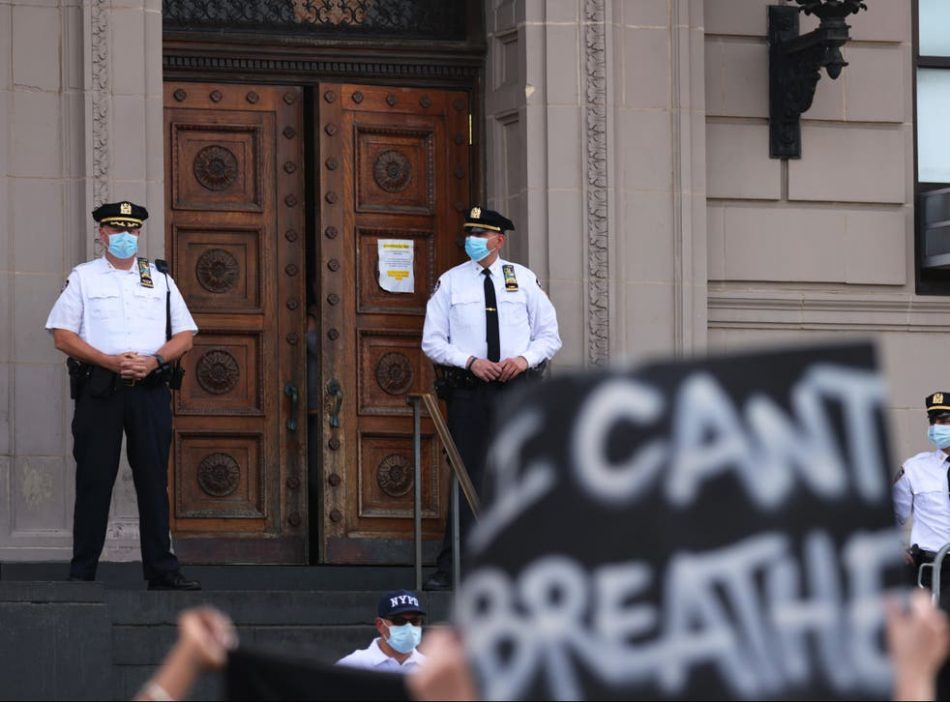We call them “trials of the century”, a colloquialism popularized by the media to describe pivotal court cases that often lead in their wake to a shift in the public discourse, indeed at times even in the ascendant paradigm. Though always suffused with political, moral and cultural passions, they are expected to play out in a dispassionate courtroom.
If you agree that a trial of the century carries that kind of heavy cargo on its back, then you will agree that the ongoing trial, now in its third week, of Derek Chauvin in Minneapolis, is one such.
This trial transcends the briefs presented by attorneys in court; it transcends the gruesome video of a white police officer kneeling on George Floyd’s neck for about nine minutes, leading to his death; it transcends the putative guilt or innocence of the defendant; and it even transcends the jury verdict itself.
For Americans at large — indeed for many folks in the world at large — the Derek Chauvin trial has become a venue where racism in American society is being adjudged as it has become a portrait of the shared trauma of otherness felt by black Americans in that society. Thus, having gained the pre-eminence — if not yet the moniker — of a trial of the century, this one will most assuredly contribute to the reshaping, albeit in time, of American political culture.
History with trials
So it has been throughout history with trials of the century, in Europe all the way from the trial of Socrates in 399BC, where the Greek philosopher was accused of “impiety” against the pantheon of Athens and of “corrupting” the youth of the City by asking his students seemingly subversive philosophical questions; to the trial in 1633, by an Inquisition court, of Galileo, whose studies of the solar system challenged the established canon that Earth was the center of the universe; and then to the trial in 1894 of Alfred Dreyfus in fin de siècle Paris, a legal drama that exposed how fragile pluralist liberalism and its institutions were at the time and how racialist hatred could thrive and, at the drop of a beret, come fully alive, even during the halcyon days of the belle époque. Along with countless other trials in between.
And in the United States, we could go all the way from the Sacco and Vanzetti trial in 1920, which encapsulated the anti-Italian racism and the intolerance for left-leaning ideologies that defined the era; to the Supreme Court case known as Korematsu v. United States, that in 1944 sanctioned the forced relocation of about 120,000 Japanese Americans to prison camps; and then to the 1995 O.J. Simpson trial. Again, with countless others in between.
That last, we all recall, became more of a “happening” than a trial, whose lasting impact was to remind ordinary Americans of the divisions, between white and black folks, that remained embedded in their society — truly a trial whose truths were debated as much in living rooms as they were adjudicated in courtrooms.
Our own modern Arab world is not without its own share of trials of the century, trials whose impact on our sociopolitical culture was equally resonant.
One could cite here the trial (and later execution by firing squad) in 1947 of Antoun Saadeh, the Lebanese ideologue, philosopher and founder of the Syrian Social National Party, who was accused of calling on his followers to rise up in revolt against the state; and, yes, lest we forget, the trial of Saddam Hussein — accused of crimes against humanity during his time in office as president — where he was sentenced to death and subsequently made to expire at the end of a noose in 2006.
Though the moniker we choose to call them by is now generic — perhaps also a touch hyperbolic — trials of the century have never failed to transfigure the moral, political and social convictions of the eras they played out in, an inevitable end result given the fact that they all grappled with universal issues of vital and enduring significance to polities around the world — the nature of democracy, freedom, justice, equality and, above all, the right of citizens to thrust themselves beyond their fixed meaning or fixed status in the City.
These are trials that do not end with the verdict, for they go on to shape and transform the very tenor of our lives and the very contour of our shared historical experience. They continue to resound, as the trial of Socrates would attest, around every corner of our public discourse for centuries after the fact.
We do George Floyd honor if we recognize how heavy is the burden of his legacy: keeping alive the searing debate in our cultural marketplace about how high is the price tag a society pays when a minority in it and of it finds itself unable to breathe, with a boot over its neck.
The writer is a journalist, academic and author based in Washington. He is the author of The Disinherited: Journal of a Palestinian Exile.
April 16, 2021
The viewpoints expressed by the authors do not necessarily reflect the opinions, viewpoints and editorial policies of Aequitas Review.


